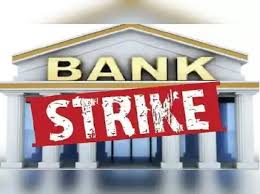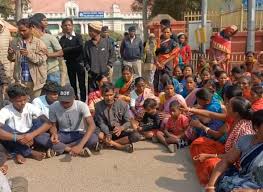U.S. President Donald Trump, who earlier this year urged Thailand and Cambodia to end fighting along their disputed border by threatening economic pressure, attended a ceremony on Sunday when the two countries inked an enlarged ceasefire pact.
As part of the first phase of the agreement, Cambodia will start to withdraw heavy weaponry and Thailand will release prisoners from Cambodia. To make sure the fighting doesn't resume, regional observers will keep an eye on the situation.
"We did something that a lot of people said couldn't be done," Trump stated. Prime Minister Hun Manet of Cambodia referred to it as a "historic day," while Prime Minister Anutin Charnvirakul of Thailand stated that the accord establishes "the building blocks for a lasting peace."
Trump attended the ceremony as his first event following his arrival in Kuala Lumpur for the Association of Southeast Asian Nations' annual meeting. Trump is using the trip—which will also include stops in South Korea and Japan and possibly a meeting with Chinese leader Xi Jinping—to bolster his image as a global negotiator at a time when his tariffs have thrown the global economy into disarray and he is at odds with Democrats over a government shutdown at home.
Shortly before 0200 GMT, Trump landed in the capital of Malaysia, where he waved both the Malaysian and American flags while performing his signature campaign trail dance with local artists.
The president inked economic pacts with Malaysia, Thailand, and Cambodia, some of which sought to expand trade in vital minerals. Because China exports few essential parts for the production of technology, the United States wishes to become less dependent on it.
"It's very important that we cooperate as willing partners with each other to ensure that we can have smooth supply chains, secure supply chains, for the quality of life, for our people and security," said Jamieson Greer, the U.S. Trade Representative.
Trump re-engages with a crucial global region
During his confirmation hearing in January, Defence Secretary Pete Hegseth appeared to be unfamiliar with ASEAN, and the president only attended this summit once during his first term.
However, Trump had the opportunity to re-engage with a group of countries with a combined economy of $3.8 trillion and 680 million citizens at this year's summit.
"The United States is with you 100%, and we intend to be a strong partner and friend for many generations to come," Trump stated. There are "spectacular leaders" among his peers, he added, adding that "everything you touch turns to gold."
Trump was also given the opportunity to play the role of world mediator with Thailand and Cambodia, two countries whose conflicting territorial claims cause sporadic border bloodshed. Over the course of five days in July, some of the deadliest contemporary combat between the two nations occurred, resulting in hundreds of thousands of people being displaced and scores of deaths.
In a show of economic might that is said to have sparked talks, Trump threatened to revoke trade deals unless the conflict ceased. Since then, a tenuous truce has continued.
According to Ou Virak, president of the Future Forum think tank in Phnom Penh, "the fact that Trump was holding the tariff card was actually very, very significant." "That's probably the main reason, if not the only reason, but definitely the main reason why the two sides agreed immediately to the ceasefire."
He added that now "there's a ceremony for Trump to be in front of cameras" in order to be "seen as the champion that brings an end to wars and conflicts," providing him "more ammunition for his bid for Nobel Peace Prize."
In his overt campaign for the award, Trump has consistently added to a list of disputes that he either assisted in resolving or asserts he has resolved.
In his opening remarks at the conference, Malaysian Prime Minister Anwar Ibrahim hailed the deal between Thailand and Cambodia, stating that "it reminds us that reconciliation is not concession, but an act of courage."
Nikorndej Balankura, a spokesman for Thailand's foreign ministry, called the agreement a "joint declaration" that will demonstrate that Thailand and Cambodia "are committed to renewing their relations."
Nikorndej remarked, "It's not an end in itself," "Work has just begun."
Trump's trip is focussing on tariffs.
While in Kuala Lumpur, Trump is anticipated to meet with Brazilian President Luiz Inácio Lula da Silva, but not with Prime Minister Mark Carney of Canada. On his approach to the summit, the U.S. leader took to social media to declare that he will raise taxes on Canada due to a television ad that protested his tariffs.
Trump's trip is mostly focused on another trade conflict, this one with China. Trump expressed optimism that his meeting with Xi, which is anticipated to occur in South Korea, might result in advancements on a number of problems to reporters accompanying him on Air Force One. Trump's priorities are the selling of soybeans and the trafficking of fentanyl.
"I think we have a really good chance of making a very comprehensive deal," Trump stated. "I'm concerned about our farmers. He also desires goods.
Whether Trump's negotiations resolve long-standing problems or postpone them until later is still up in the air.
U.S. Treasury Secretary Scott Bessent said Sunday that rather than pursuing China's export limits on rare earth elements and America's increased tariffs, Washington and Beijing may back off from their conflict.
In response to a question about whether the two nations could prolong their trade truce from earlier this year, Bessent responded, "I would say yes." He did, however, stress that Trump will have the last say.
During the trip, Trump has voiced confidence in the possibility of concluding trade accords with two historic trading partners and allies, South Korea and Japan.
"We have deals with a lot of people and they're very good deals," he said to reporters on Air Force One.
One prominent figure who did not attend the Kuala Lumpur conference was Prime Minister Narendra Modi of India. He and Trump were tight throughout his first term, but recently their relationship has become increasingly strained. Trump infuriated people by claiming to have resolved a recent dispute between India and Pakistan and by raising taxes on India for importing Russian oil.

.jpg)
.jpg)
.jpg)
.jpg)
.jpg)

